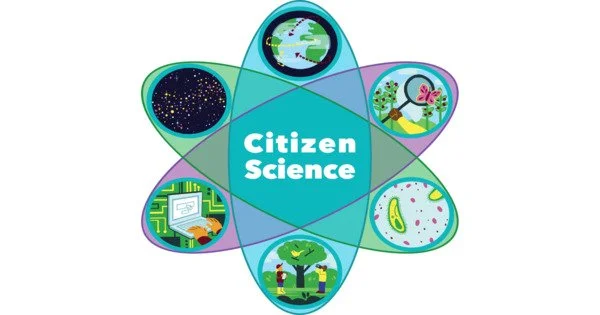Citizen science is a study undertaken with the general population, or amateur/nonprofessional researchers or participants, in science, social science, and a variety of other disciplines. It refers to the participation of the general population, most of whom are not professional scientists, in scientific research operations. The actual meaning of citizen science varies, with different persons and organizations having their own interpretations.
Citizen science is employed in many fields of inquiry, including ecology, biology and conservation, health and medical research, astronomy, media and communications, and information science. It is a collaborative strategy in which volunteers, or “citizen scientists,” actively participate in scientific research by collecting, analyzing, and interpreting data. The general public’s involvement can greatly broaden the scope and size of scientific study, as well as encourage public participation in scientific pursuits.
Citizen science has a variety of applications and purposes in research initiatives. Citizen science can be defined as a process in which public volunteers assist in data collection and classification, hence increasing the scientific community’s capabilities.
Key characteristics of citizen science include:
- Data Collection: Citizens actively participate in data collection, often contributing observations, measurements, or samples. This can be especially valuable in projects that require extensive data gathering over a large geographic area or for extended periods of time.
- Analysis and Interpretation: Volunteers may also be involved in analyzing and interpreting data. This could include tasks like classifying images, transcribing handwritten notes, or identifying patterns in data sets.
- Problem Solving: Citizen scientists may be engaged in addressing specific research questions or solving problems. Their collective efforts can lead to valuable insights and discoveries.
- Education and Outreach: Citizen science projects often have an educational component, providing an opportunity for participants to learn about scientific processes, methods, and the specific subject matter of the project.
- Technology and Connectivity: Advances in technology, particularly digital platforms and mobile apps, have made citizen science more accessible. Individuals can provide data and engage with researchers more easily using these technologies.
Citizen science can also include more direct public participation, with communities launching programs to investigate environmental and health hazards in their own towns. Participation in citizen science programs also teaches the general people about the scientific process and raises awareness about various topics. Some schools incorporate citizen science projects into their teaching curricula.
















